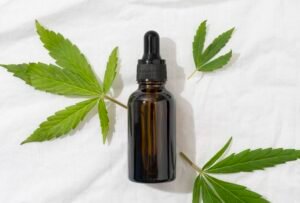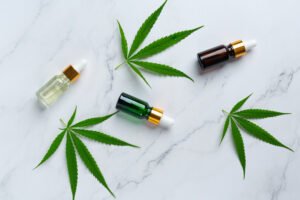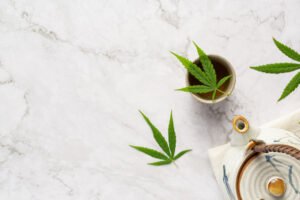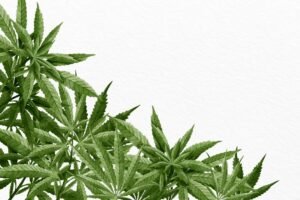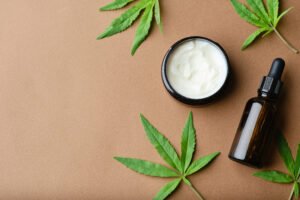In recent years, as the acceptance and legality of hemp and cannabis products have expanded across the United States, consumers have shown growing interest in the natural compounds found within these plants: cannabidiol (CBD) and tetrahydrocannabinol (THC). Both CBD and THC interact with the body’s endocannabinoid system, but they elicit distinctly different effects. In this article, we will explore the major differences between these two compounds, helping you make informed choices about their usage.
Also Read: Secondhand Marijuana Smoke
Is Cannabis Addictive?
The matter of CBD and THC is just one of the concerns for individuals dealing with substance abuse or addiction. Cannabis can indeed be addictive, and if your cannabis use has started to impact your daily responsibilities, seeking help from a substance abuse treatment program could be beneficial.
If you’re uncertain whether you have an issue with cannabis, consider the following questions:
1. Do I frequently find myself preoccupied with thoughts of cannabis?
2. Am I struggling to control my cannabis consumption?
3. Has my cannabis use caused conflicts with friends or family?
4. Do I persist in using cannabis despite the problems it causes in my life?
If you’ve answered “yes” to any of these questions, it’s possible that you have a cannabis problem. Fortunately, there are treatment options available to support you in overcoming your addiction.
If you or someone you know is grappling with addiction, don’t hesitate to seek help. Numerous resources are accessible to guide you in locating the appropriate treatment. Treatment approaches can vary depending on the individual but typically involve a combination of medications, therapy, and participation in support groups. With the right treatment, recovery from addiction is achievable, allowing you to lead a healthy and fulfilling life.
Also Read: Medicinal Cannabis
CBD vs. THC
The following table summarizes some differences between CBD and THC cannabinoids.
| CBD | THC | |
| Is illegal | no — see paragraph below | yes — see paragraph below |
| Produces a high | no | yes |
| Interacts with endocannabinoid system | yes | yes |
| Has side effects | some | psychoactive side effects |
| Shows on drug test | possibly | yes |
| Relieves pain | yes | yes |
| Reduces nausea | yes | yes |
| Eases migraine | yes | yes |
| Reduces anxiety | yes | yes |
| Eases depression | yes | no |
| Decreases seizures | yes | no |
| Is anti-inflammatory | yes | yes |
| Helps with insomnia | yes | yes |
| Helps with psychosis | yes | no |
| Increases appetite | no | yes |
| Is used for various other conditions | yes | yes |
Chemical Structure: CBD and THC
CBD and THC share a nearly identical molecular structure, consisting of 21 carbon atoms, 30 hydrogen atoms, and 2 oxygen atoms. However, a slight variation in the arrangement of these atoms leads to different effects on the body. Both compounds are chemically similar to the body’s endocannabinoids, allowing them to interact with cannabinoid receptors and affect neurotransmitter release in the brain.
Also Read: Cannabis Allergy Symptoms
Is CBD as Potent as THC?
Despite their structural similarity, CBD and THC have distinct psychoactive effects. While CBD is considered psychoactive, it does not produce the traditional “high” associated with THC. THC binds with cannabinoid 1 (CB1) receptors in the brain, leading to euphoria, especially when inhaled. In contrast, CBD interacts with CB1 receptors differently, producing no such high.
Legality: The Complex Landscape
In the United States, cannabis-related laws are continually evolving. Hemp-derived CBD products with less than 0.3% THC are federally legal. However, marijuana-derived CBD products are federally illegal but legal in some states. As of March 2023, many states have legalized medical cannabis, while some allow limited access to low-THC cannabis or CBD oil. Recreational cannabis is legal in several states and territories, allowing access to CBD.
It’s crucial to research your state’s laws before purchasing CBD and THC products, as using them in states where they are illegal may result in legal penalties.
Also Read: Teenagers and Cannabis
Medical Benefits and Pain Relief: CBD and THC
Both CBD and THC offer pain relief and have overlapping medical benefits. CBD has been FDA-approved for the treatment of rare forms of epilepsy. It is also explored for its potential in treating conditions like depression, anxiety, insomnia, and schizophrenia, though FDA approval for these uses is pending further research.
THC, on the other hand, is approved for treating chemotherapy-induced nausea and vomiting. It also stimulates appetite in people with AIDS or anorexia. Recent studies are investigating its effectiveness in managing chronic pain, such as fibromyalgia.
CBD and THC: Side Effects and Drug Testing
CBD is generally well-tolerated, even in high doses. Any side effects are usually related to drug interactions, including potential liver damage.
In contrast, THC can cause temporary side effects and long-term negative psychiatric effects, particularly with high use. Long-term cannabis use may lead to a motivational syndrome characterized by symptoms of depression and low motivation. However, there is no conclusive evidence linking cannabis use to psychiatric disorders like schizophrenia.
Both CBD and THC can be detected in drug tests for days or weeks after use, depending on various factors. It’s essential to be aware of this when considering their usage, and to avoid CBD and THC products if facing a drug test, as some products claiming to be THC-free may still contain trace amounts.
Also Read: Hemp vs. Marijuana
In conclusion, while CBD and THC share some common ground, they diverge significantly in terms of psychoactive effects, legality, and potential medical uses. Understanding these distinctions is vital for making informed decisions about using these compounds for various purposes. Always consult with a healthcare professional before incorporating CBD and THC into your healthcare routine, especially if you are currently taking medications or facing specific health concerns.
FAQs
Q. What is the main difference between CBD and THC?
A. CBD (cannabidiol) and THC (tetrahydrocannabinol) differ primarily in their psychoactive effects. CBD does not produce a “high,” while THC is known for its psychoactive properties and can induce a “high.”
Q. Are CBD and THC both legal in the United States?
A. The legality of CBD and THC varies. Hemp-derived CBD products with less than 0.3% THC are federally legal. Marijuana-derived CBD products are federally illegal but legal in some states. THC is legal for medical and recreational use in some states but illegal on the federal level.
Q. Do CBD and THC interact with the endocannabinoid system?
A. Yes, both CBD and THC interact with the body’s endocannabinoid system, but they produce different effects.
Q. What are the side effects of CBD and THC?
A. CBD may have some side effects, often related to drug interactions and potential liver damage. THC can produce psychoactive side effects and may have long-term negative psychiatric effects with high use.
Q. Do CBD and THC show up on drug tests?
A. While CBD may possibly show up on drug tests, it does not always. THC typically shows up on drug tests. Be cautious when using CBD or THC products if you might face a drug test.
Q. What are the medicinal benefits of CBD and THC?
A. Both CBD and THC offer pain relief and have overlapping medical benefits. CBD is FDA-approved for certain forms of epilepsy and is explored for conditions like depression, anxiety, and insomnia. THC is FDA-approved for chemotherapy-induced nausea and vomiting and stimulating appetite in certain cases.


